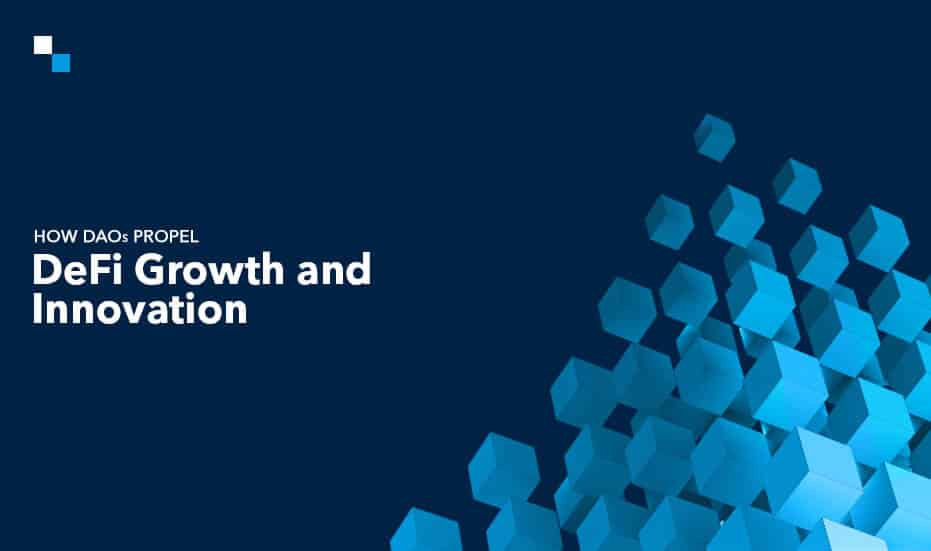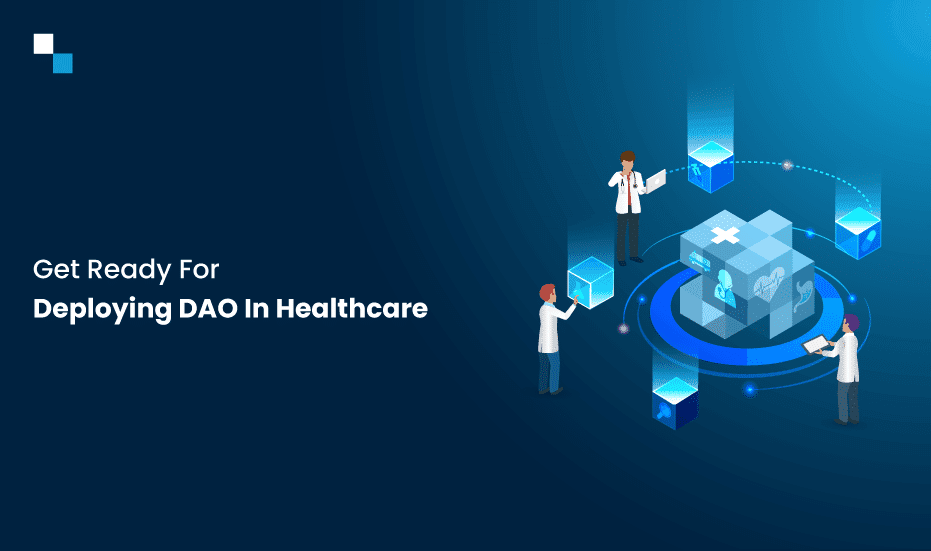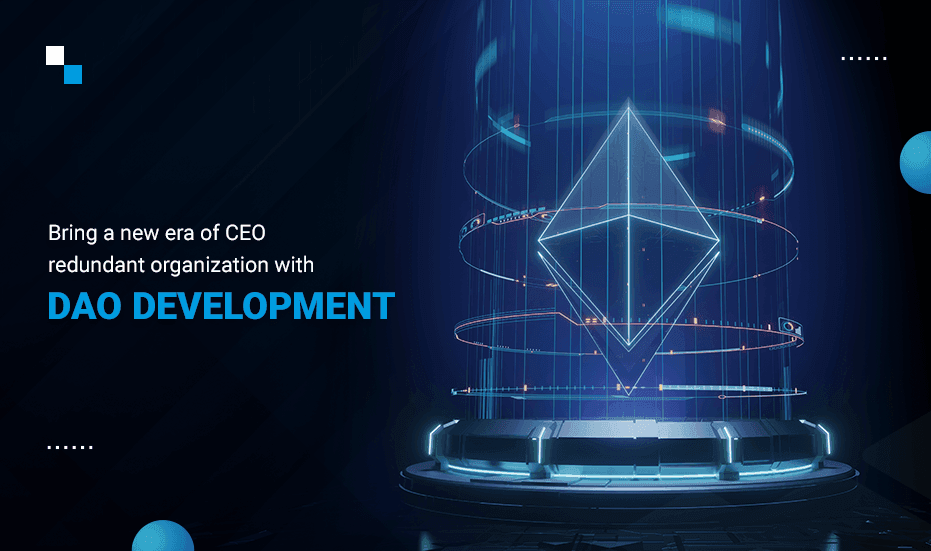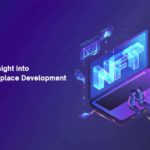
NFT Marketplace Development: Your Ticket to Fast-Paced Business Growth in 2022
April 18, 2022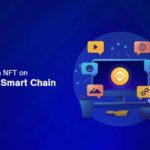
BEP 721 Token Development: Tap into the Burgeoning NFT Market
April 20, 2022The enterprise community across the globe is witnessing pathbreaking technological innovations driving growth. The popularity of Web 3.0 is growing as coders and end-users have gained trust in decentralized blockchains, where personal data lives freely and openly, in contrast to traditional, opaque databases that store huge amounts of data.
DAOs (Decentralized Autonomous Organizations) are quickly becoming the trendiest Web3 subject in 2022, much like NFTs were in 2021. This has led to increasing demand for DAO development.
2022 is simply the year of DAOs while clearing the pathway in the years ahead. Can’t believe? Let’s have a look at a few recent stats:
As per a recent report by Snapshot Labs, DAO multiplied 8.8 times in 12 months.Not only this, the participation of DAO members experienced an elevation from 448,000 votes to 3,700,000 million during May 2021 and 2022.
What exactly is a DAO and why was it created?
While the current rise of DAOs may be a little puzzling, their foundation and purposes are not hard to decipher. A decentralized autonomous organization is a community-controlled body that is not dominated by any central entity, such as a government or a company, and is governed by rules embedded as a clear computer program.
In simple terms, under decentralized autonomous organization development, power gets distributed across DAO governance token holders, further getting the authority to collectively cast votes and become a part of the regular yet critical decision-making process.
The concept behind a decentralized organization is that anyone who possesses its tokens may administer it collectively (we’ll go into more detail about tokens in the following section). Individuals who own DAO tokens are participants, and they may make decisions about the DAO’s future, as well as how money can be spent or handled.
Understanding the Real Purpose of Developing DAO
The prime motive behind DAO blockchain development is to strengthen the traditional management system of businesses where no reliance on a single authority is implemented. A group of individuals can no longer guide the operations of the entity and every single member gets the voice, right to vote, and equal chance to propose initiatives and changes in the system.
Decentralization autonomous organization is equipped with strict governance which is dictated by code over a blockchain.
In practice, how does a DAO function?
When the foundation rules of a specific DAO are defined, the next stage is to acquire its funding. This is often accomplished by the issuing of tokens. A DAO requires a token, which is a digital unit that represents a certain value, to acquire funds and create voting rights within its community. Investors who purchase DAO tokens have the opportunity to make choices with them; the amount of their right to vote is generally proportionate to their ownership. Most DAOs need a referendum on a proposal to withdraw or transfer assets. Decisions are made by suggestions that the group votes on over a set period. Following the submission of the proposal, voting takes place.
As the number of users and funds in a DAO grows, the community demands a level of structure and operational execution to assist the DAO in operating. Tools are essential components of DAOs since they make it simpler for members to participate logically, they assist in preserving operating effectiveness as DAOs develop, and ensure transparent decision-making at scale without breaking the DAO’s decentralized characteristics.
A DAO, like a typical firm, requires assistance in seven fundamental organizational functions:
- Community – Tools for facilitating community dialogue
- People – Management of talent and knowledge
- Public relations and marketing tools: Tools used to promote contributions and reputation.
- Business Development – Tools for laying the groundwork for a DAO, including governance, member engagement, and voting.
- Treasury Management – Tools for managing a DAO’s money, tokens, and remuneration for DAO members.
- Main Product – Front end, analytics, and design
- Engineering – Tools for managing DAO access
DAO development is a complex procedure that attracts significant skills, resources and manpower. Hiring a DAO development company is the best approach to get a hand over your own DAO solution.
Key Benefits of a DAO
1. Utilizes computer code to implement
Unlike conventional institutions, which are governed by elected users, DAOs are run by computer code. Blockchain-based controls ensure that no single person has complete power over the community. As a result, decisions are made more quickly and transparently. A seasoned blockchain development firm can help you create a DAO and put smart contracts into it for speedier functioning.
Create your own DAO
Schedule Free Demo2. Smart contract implementation
DAOs get unanimity using smart contracts that are based on blockchains. These virtual agreements are automated and include irreversible, encrypted data. The programs incorporate complex data and eliminate the need for human interference. Having said that, decision-making via DAO is quicker. Users are not required to be physically present to vote using DAO. A DAO development company skilled in Ethereum contract creation can assist you in creating DAO smart contracts. The following data is stored in the DAO smart contracts:
- Limits and Restrictions
- Principles & Guidelines
- Various Functionalities
- Agreement location
3. Improved trust and transparency
The unique thing about DAO development is that it provides entities with immediate trust and transparency, allowing them to focus on achieving their common goals. The rules of participation are encoded in a public, secure, and open-source blockchain record, so players do not need to know one other. Due to the tamper-proof nature of the blockchain ledger, no participant can change the procedures without a majority vote. As a result, the sole function of a DAO organization is to promote the collective interests of a community.
4. Fully decentralized
In a traditional business system, one particular authority makes the decisions and actions to be taken in the organization, and the opinion of the rest of the workforce aren’t taken into account. So, they play no role in the future planning of the enterprise. However, DAO architecture is completely decentralized which indicates the power isn’t held centrally and every individual holds equal rights to vote and propose changes to the system, whether critical or a regular decision, the final call is taken based on every member’s opinion.
5. Fully automated
In the blockchain, DAO rules exist as embedded codes and when the program operates, the rules get enforced automatically which demands no human intervention at all. This indicates there is no need for human resources, time, and efforts and businesses can expect flawless outputs as never before.
6. No involvement of intermediaries
Users get to perform transactions without the involvement of any third-party, regulatory bodies, or law practitioners.
All the above-listed benefits of DAO might be challenging to implement in modern business models, especially for the newbies who don’t hold much exposure to the DAO market. At this point, hiring a professional DAO development company can be a wise decision to leverage the cutting-edge technology based on your unique business needs and expectations.
Things to Consider Before Starting DAO Development
Prior to getting into the DAO space, it becomes imperative for every market leader and DAO enthusiast to be aware of the nitty-gritty of Decentralization Autonomous Organization development. Below are the basic considerations that one must be aware of regarding DAO:
- DAO structure is not based on any hierarchical management structure and is completely decentralized where the power is in the user’s hands rather than a sole authority. Unlike the top-down approach in traditional business models, DAOs work upon a bottom-up approach where the power is regulated from the users at the bottom which results in a flawless and fair decision-making process.
- Each DAO member enjoys an equal opportunity to propose an idea, vote for changes in the protocol and raise their voice. This ensures no one body has the right to change the system without the consent of members.
- The potential liability of every member is unlimited in DAO. Unlike traditional business functioning, DAOs aren’t regulated by legal formalities like bylaws, contracts, and registration processes.
- DAO tends to be a secure yet transparent method for organizing funds which indicate that every DAO needs to have an active fundamental platform with regular participation.
- Market players will need to allow users to prove their eligibility for making DAO contributions. Projects will enable users with governing rights with a multi-utility token.
Conclusion
Decentralized companies rely heavily on a delegative approach supported by broad IT applications. The more a company uses blockchain technology, the more decentralized its management style becomes. More of its choices are outsourced and mechanized, and trust is based on arithmetic rather than opinion. When this occurs, the autonomous software algorithms completely guide the actions of the stakeholder transition from social organizations’ to ‘artificial organizations.’ Participants are not a necessary element of every organization, but code is. A DAO is a next-generation organization design that will demand fresh study to understand how this new type of organization affects present ideas.
If you are planning to build a DAO, Antier Solutions can be your reliable technical partner. Equipped with seasoned blockchain engineers and subject matter experts, we provide a comprehensive solution – including utility token development, governance token development, smart contract development – to deploy a DAO as per your objectives.
Connect with our subject matter experts to share your needs for DAO development.

